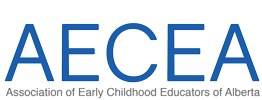Trauma is part of the human experience and working from a trauma-informed lens acknowledges the prevalence of trauma within the population. As such, front line workers in the human services sector can anticipate that they will often serve individuals who have experienced or been affected by trauma. This is a two-day training that acknowledges the prevalence and significant impact of trauma in an individual’s life and aims to inform service providers how to apply a trauma-informed lens to their current practice. Learning to deliver services in this way will allow service providers to appreciate the context in which their clients live without contributing to these traumatic experiences. Trauma-informed care aims to provide services in ways that recognize the client’s need for emotional and physical safety, as well as provide the opportunity for client choice, control and collaboration in one’s own support and services provided (Arthur et al., 2013). This workshop will define and describe the six main trauma-informed principles outlined in the literature and will focus on how to translate these principles into practice.
By the end of this workshop, participants will be able to:
- Define trauma and understand the different types of trauma
- Identify the signs and symptoms of trauma
- Understand the impacts and effects of trauma
- Define and understand trauma-informed practice
- Identify the main principles of trauma-informed practice
- Understand how to implement trauma-informed principles at that organizational, personal and practice level
- Reflect on how this knowledge fits into your current work
- Recognize the impact working with trauma can have on a practitioner and understand the importance of self-care and reflective practice
Date & Time
January 25-26, 2023 9:00 a.m.-4:00 p.m.
Location
Online
This training is being generously sponsored by Alberta Health for all Albertans. This $220/per person training is now available at no cost to Albertans
For more information and to register, go here.
